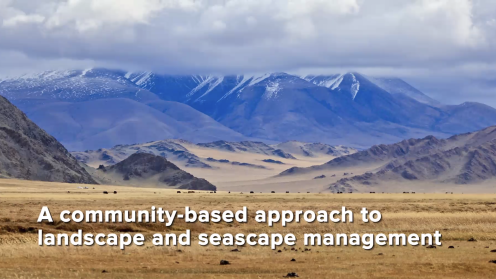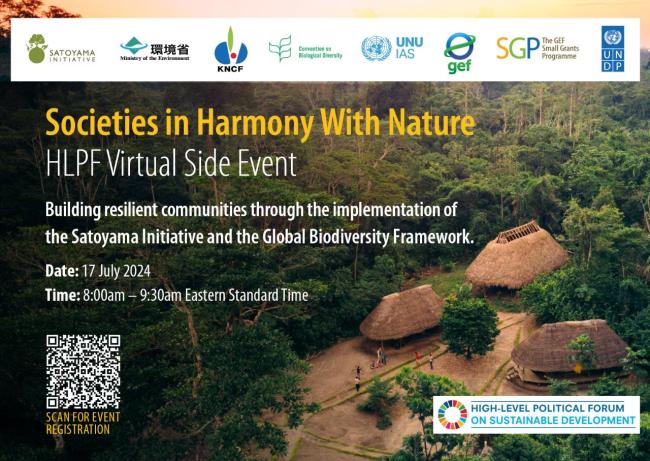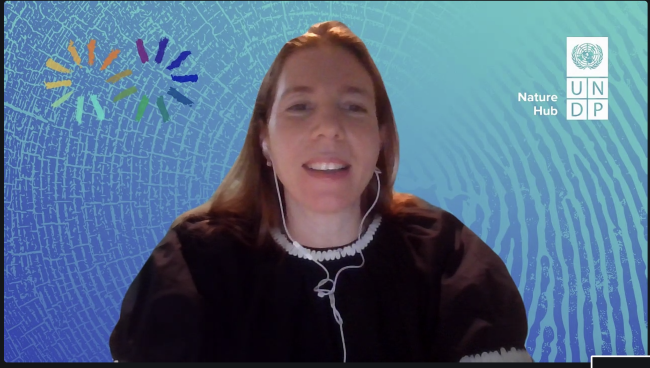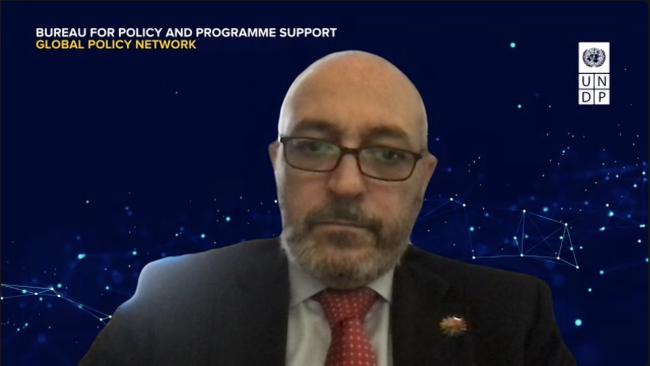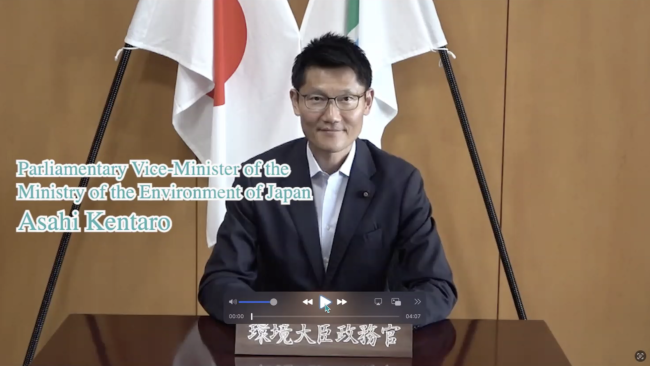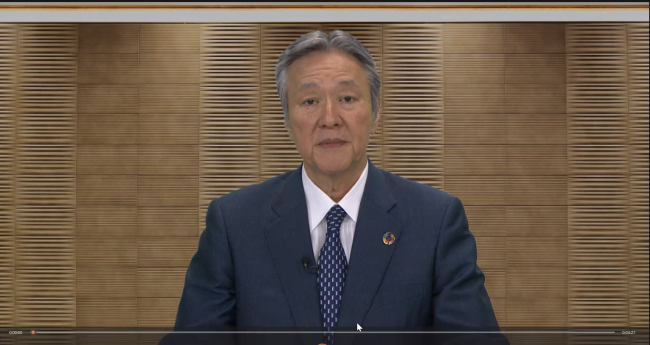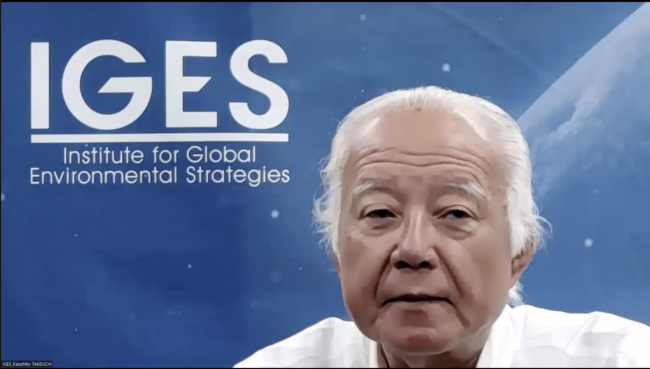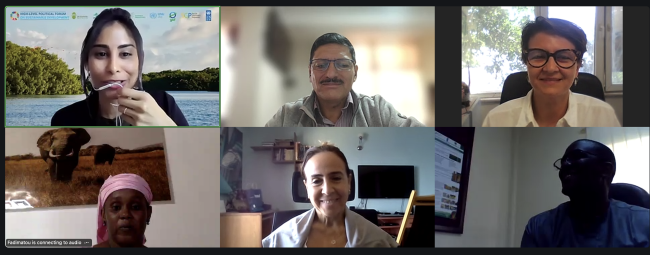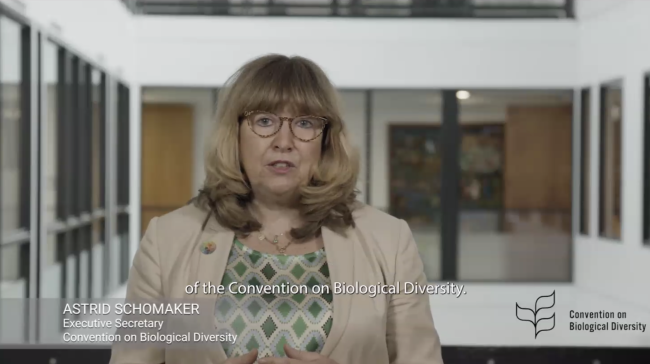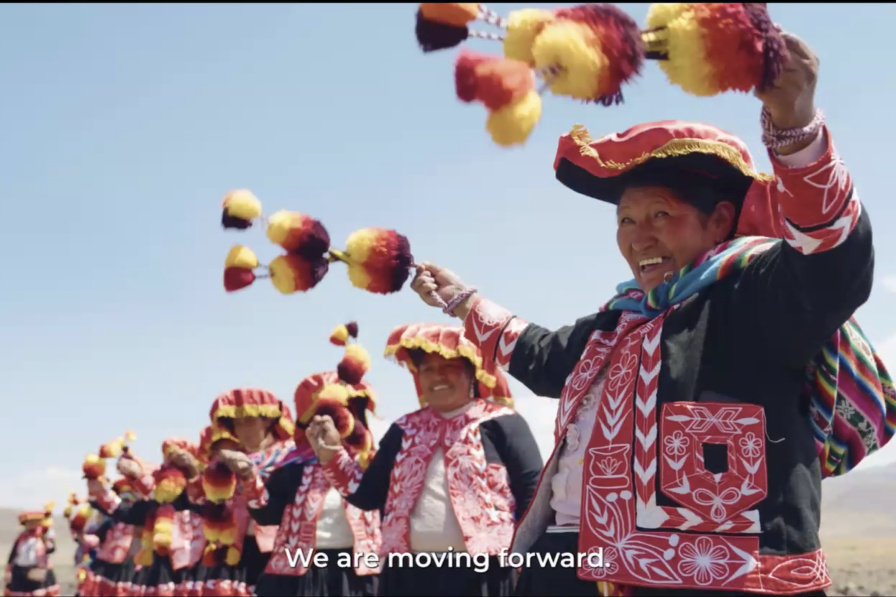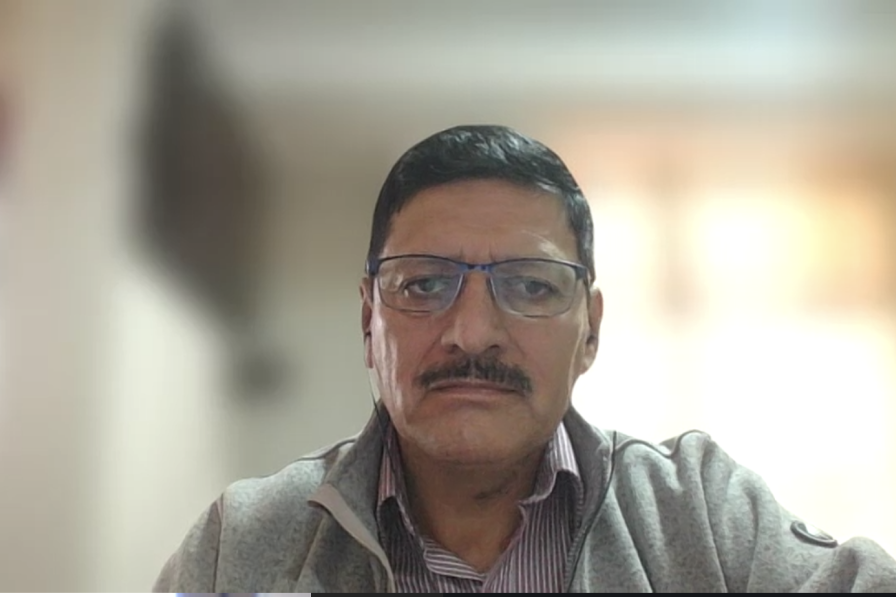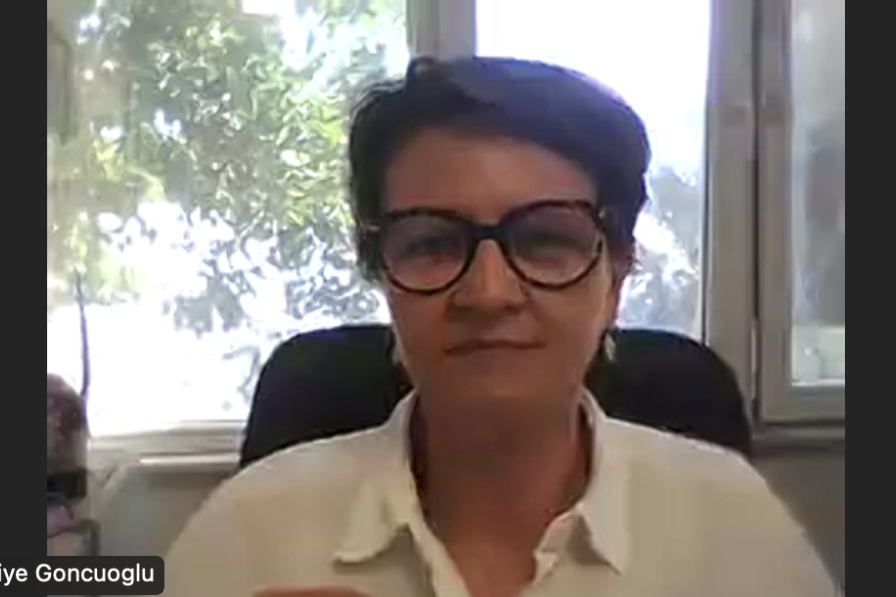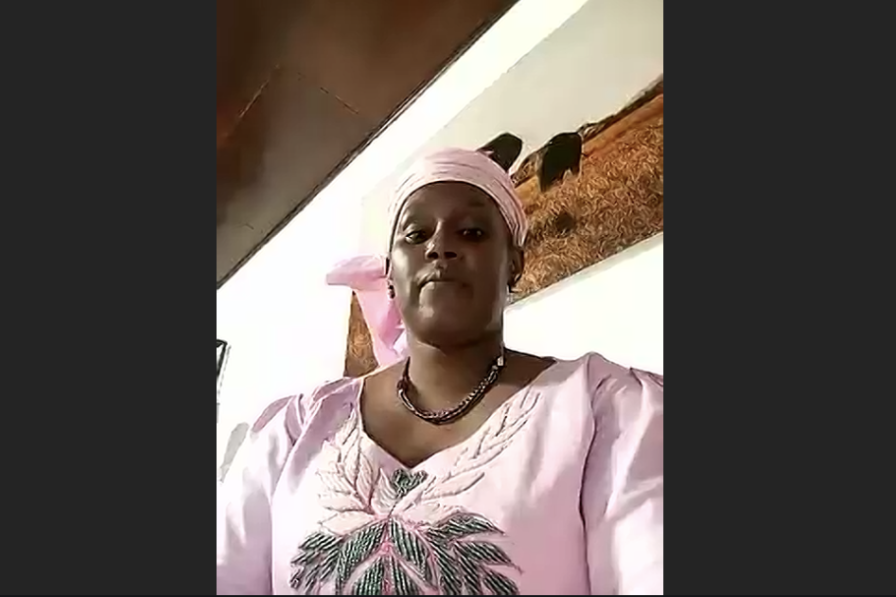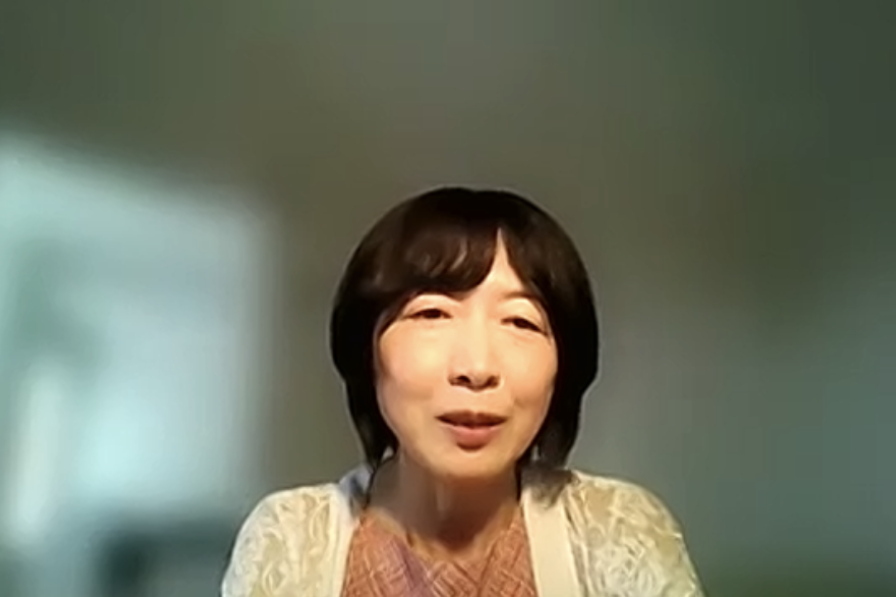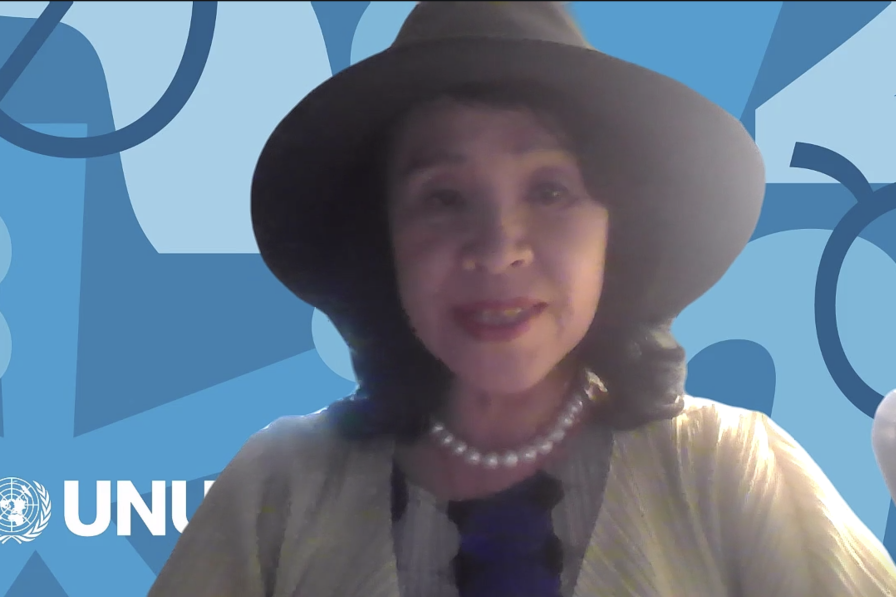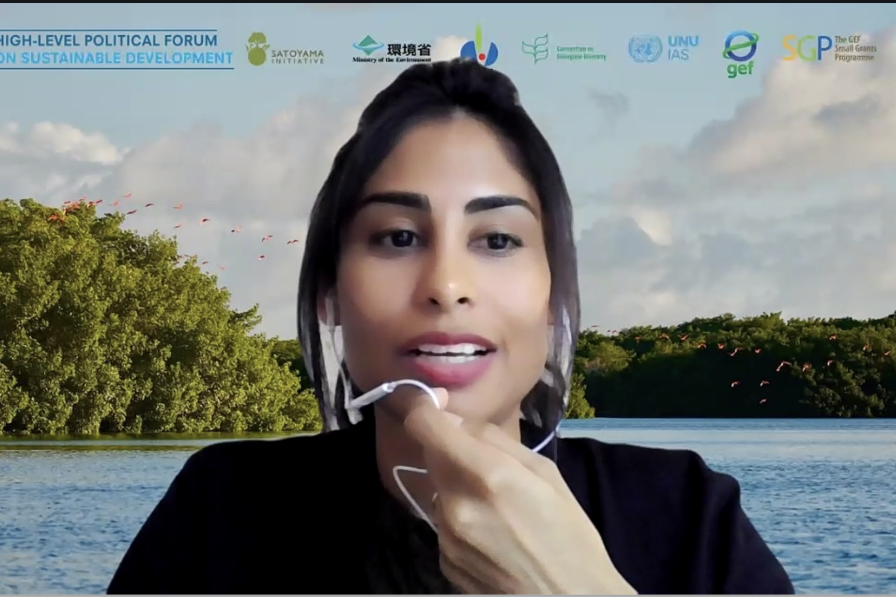About
Aligned with the HLPF 2024 theme on “Reinforcing the 2030 Agenda and eradicating poverty in times of multiple crises: the effective delivery of sustainable, resilient and innovative solutions” this side event highlighted the role of COMDEKS in achieving the SDGs and key targets under the Kunming-Montreal Global Biodiversity Framework.
A virtual side event to the 2024 session of the High-Level Political Forum gathered participants to highlight the role of the COMDEKS Programme (Community Development and Knowledge Management for the Satoyama Initiative) in achieving targets under the Sustainable Development Goals (SDGs) and the Kunming-Montreal Global Biodiversity Framework (GBF).
Participants discussed COMDEKS’ fourth phase, launched following the adoption of the GBF, as a key pillar of the Satoyama Initiative, a global initiative supporting local action on conservation and sustainable management of socio-ecological production landscapes and seascapes. Speakers also shared experiences from three COMDEKS projects in Türkiye, Peru and Cameroon.
Diana Salvemini, UN Development Programme (UNDP), welcomed participants and highlighted the role of COMDEKS in achieving biodiversity targets by promoting local action towards global solutions on the triple planetary crises of climate change, biodiversity loss, and pollution. Marcos Neto, UNDP Assistant Administrator and Director, highlighted COMDEK’s central role in supporting necessary societal, political, and economic shifts to implement the GBF.
Kentaro Asahi, Japanese Vice-Minister of the Environment, said COMDEKS supports community-led action and knowledge dissemination, adding that his government is providing financial support for COMDEKS’ fourth phase.
Keiji Nishizawa, President of Keidanren Nature Conservation Council (KNCC), said COMDEKS develops best practices for nature-positive actions that support community wellbeing and the Convention on Biological Diversity’s (CBD) 2050 vision of Life in Harmony with Nature.
Shinobu Yume Yamaguchi, Director, United Nations University-Institute for Advanced Studies (UNU-IAS), spoke about the Indicators of Resilience toolkit as a flexible tool that can be used by communities to assess their resilience, allowing communities to navigate multiple environmental pressures while implementing restorative actions that enhance ecosystem services.
Satoyama and COMDEKS Overview
Participants observed a video outlining COMDEKS’ achievements, including 400 projects in 20 countries that have restored more than 271,000 hectares of ecosystems. Kazuhiko Takeuchi, Institute for Global Environmental Strategies (IGES), described the International Partnership for the Satoyama Initiative (IPSI), noting it supports socio-ecological production landscapes and seascapes (SEPLS) that are inspired by historical management of landscapes and seascapes referred to as satoyama and satoumi in Japanese. He outlined contributions to GBF targets, including reducing biodiversity loss and ecosystem restoration, and SDGs including poverty reduction (SDG 1), life below water (SDG 14), and life on land (SDG 15).
Rissa Edoo, COMDEKS Partnerships Specialist, explained that, with financial support of 1 billion Yen from the Japan’s Ministry of the Environment and KNCC, COMDEKS phase 4 will back projects in 15 countries through grants and knowledge management.
Community Roundtable Discussion on Social Inclusion and Women’s Empowerment through COMDEKS
Edoo moderated a roundtable with COMDEKS practitioners from Türkiye, Peru, and Cameroon on challenges, solutions, long-term impacts, and next steps.
Huriye Goncuoglu, Women in Fisheries Society (Türkiye), described a project empowering fisherwomen in the Gökova Bay area to overcome fish stock decline and invisibility of women’s roles in the fishing sector. Through COMDEKS and the Global Environment Facility’s Small Grants Programme (SGP), several projects addressed sustainable fishing practices, the health of the marine ecosystem in the Datça-Bozburun Peninsula, and the establishment of women cooperatives and other institutions ensuring inclusion, leadership, and ownership by women. She said the project’s long-term impacts were recognized through national and international awards including the Equator prize.
Gokmen Argun, Türkiye National SGP Coordinator, added that COMDEKS Phase 4 will expand this approach to fisherwomen in Northern Türkiye focusing on locally threatened species. She noted the lessons learned from previous COMDEKS phases will also inform the restoration of landscapes that were affected by the 2023 7.8 magnitude earthquake in Southeast Türkiye.
Luis Palma, Centro de Capacitación Campesina de Puno (Peru), presented the Water Guardians project in Peru’s Puno region using ancestral knowledge to re-green Andean landscapes, noting challenges including rural poverty and migration, biodiversity loss, and climate change impacts. The project empowers indigenous women to grow a traditional crop that conserves soil moisture and provides medicinal benefits, alpaca feed, and textile fibers. Palma said women leadership was supported through multi-stakeholder platforms that also included local and regional governments academia, civil society and other partners in the Puno landscape. He noted that the water guardian project is now being scaled up by the government and other partners to other communities in Puno.
Fadimatou Hashimi, Association Horizon Info, and Aime Kamga, SGP National Coordinator, Cameroon, outlined a project promoting alternative energy sources in rural areas to address deforestation caused by reliance on fuel wood. Hashimi explained that teaching women to produce bio charcoal from agricultural waste and grass cuttings enables them to sustainably meet their energy needs, grow diverse crops, and produce surplus for sale. Capacity building and training on financial management and accounting further allowed women to start small businesses to increase household income. Kamga added that relying on local crop species also allowed participants to overcome the impacts of the COVID-19 pandemic. In Phase 4, SGP Cameroon plans to replicate these community-led revolving funds to promote economic sustainability and support livelihood development.
In a closing video, the newly appointed CBD Executive Secretary Astrid Schomaker highlighted the Satoyama Initiative’s contribution to the sustainable management of land and seascapes. Noting that COMDEKS produces transformative knowledge, she called on policy makers to “amplify COMDEKS with political will” during the upcoming 16th meeting of the Conference of the Parties to the CBD to be held in October 2024.
The side event was organized jointly by the Ministry of the Environment Japan (MOEJ), the Keidanren Nature Conservation Council (KNCC), the Secretariat of the Convention on Biological Diversity (CBD), the UN University Institute for the Advanced Study of Sustainability (UNU-IAS), the Institute for Global Environmental Strategies (IGES), the GEF Small Grants Programme (SGP), and the UN Development Programme (UNDP).
The COMDEKS Phase 4 brochure is available on the following link: https://sgp.undp.org/innovation-library/item/2618-comdeks-phase-4--societies-in-harmony-with-nature.html
The Earth Negotiations Bulletin writer for this meeting is Stefan Jungcurt. The Digital Editor is Natalia Mroz. The Editor is Lynn Wagner.
To receive free coverage of global environmental events delivered to your inbox, subscribe to the ENB Update newsletter.
All ENB photos are free to use with attribution. For Societies in Harmony with Nature, please use: Photo by IISD/ENB | Natalia Mroz.
